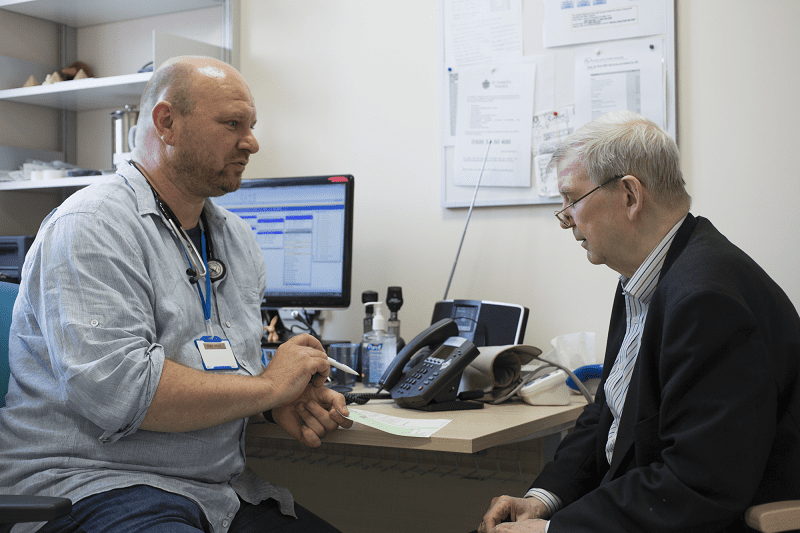Patient Safety Collaboratives (PSCs) identify and spread safer care initiatives in their local health and care systems. As part of our response to the COVID-19 pandemic, here are some information and resources to support people working in primary care.
Go back to patient safety during COVID-19.
Pulse oximetry and remote monitoring guidance
COVID virtual ward models use pulse oximeters to safely monitor and support patients at home, providing an opportunity to detect a decline in the patient’s condition that might require hospital review and admission. Patient Safety Collaboratives are supporting the implementation of COVID virtual wards and the use of pulse oximeters in their local health and care systems.
Spotting serious illness and sepsis
Some people are more at risk than others of becoming unwell very quickly and developing a serious illness such as sepsis. This is known as ‘deterioration’ and it is important that anyone who cares for individuals who are at risk of deterioration knows how to spot the signs, especially during the current COVID-19 outbreak.
Find out about the tools available to recognise physical deterioration and take the appropriate actions.
The National Early Warning Score (NEWS) is used by GPs, all ambulance services and most acute hospital trusts. NEWS is associated with a reduction in mortality in those patients admitted with a possible diagnosis of sepsis without increasing the overall number of admissions, according to a paper recently published by the British Journal of General Practice (BJGP).
You can read more about how NEWS can be applied in primary care.
RCGP / AHSN Network webinars
The Royal College of General Practitioners and the AHSN Network have been collaborating on a series of joint webinars. The first two are available to watch again and you can download the presentations here:
- COVID Oximetry @home: an overview for primary care: This webinar highlighted the association between oxygen saturations and COVID-19 which underpins the need for the COVID Oximetry @home pathway, a collaborative approach to monitor and manage patients at risk of sudden deterioration.
- Primary care in care homes during COVID-19: This webinar shared examples of current good practice and collaboration between primary care and care homes, including resources to support virtual ward rounds.
- COVID-19 and children: what the busy clinician needs to know: This webinar considered how COVID-19 affects children, identifying and managing non-COVID-related illness, and a brief review of its wider impact.
- COVID-19: Patient assessment and the role of physiology and oximetry: The assessment of patients who are unwell with COVID-19 or other causes presents a significant challenge for GPs and clinicians working in primary care. This webinar in April 2020 considered the role of oximetry and other physiology in that assessment.
Safe tracheostomy care
A toolkit for healthcare staff has been published by the National Tracheostomy Safety Project (NTSP) in collaboration with the AHSN Network and the National Patient Safety Improvement Programmes in response to the COVID-19 pandemic, to support healthcare staff who are looking after patients with tracheostomies.
Primarily the toolkit is for hospital staff. However, much of the material is also applicable to primary and community care settings.
COVID-19 resources
There is more information on the Royal College of General Practitioners COVID-19 Resource Hub.
Follow this link for more information on patient safety during COVID-19.

“Health equity is the attainment of the highest level of health for ALL people. Achieving health equity requires valuing everyone equally with focused and ongoing societal efforts to address avoidable inequalities, historical and contemporary injustices, and social determinants of health — and to eliminate disparities in health and health care.” (health.gov) Within the NHS there [...]

Sickle cell disease (SCD) is a serious and lifelong health condition. People with SCD produce unusually shaped red blood cells that can cause problems because they do not live as long as healthy blood cells and can block blood vessels. This can result in suffers experiencing painful episodes, called sickle cell crises, as well as anaemia, [...]

At the Royal Society of Medicine’s Tackling Inequalities conference it was clear from the passion in the room that great progress has been made across the system to better support some of our most under-served communities. To maintain this momentum, we must not just embed tackling health and healthcare inequalities in all that we do, [...]







